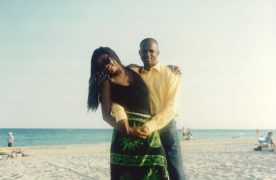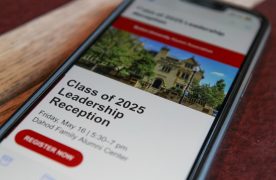Part of a liberal education is being reminded of how guilty you are. Guilt for what? Well, remember that as a liberal arts student, you are likely to be white, middle-class and Christian. Consequently, you are responsible for slavery, poverty and the Crusades. But it doesn’t stops there: You are also an American, which means you’re guilty for every bad thing that’s happened at any time, anywhere in the world, in the past 200 years.
Some of us find this a little hard to swallow, but not others. I remember one classmate of mine in particular. My professor had asked which of us had ever visited the Vietnam memorial. Half of us raised our hands. We had aced the test of our patriotism.
But this was a trick question.
I mean, sure, any American can visit a war memorial and think about the American soldiers who have died. The hard part is visiting a memorial for American soldiers to grieve for the people who killed them. So, who among us had spared a thought for the Vietcong at the Washington memorial?
Only one. The girl who had visited the American war memorial to think of foreign soldiers still had her hand proudly raised, obviously more moral than the rest of the class. She accepted her guilt, while we were all struggling to come to terms with ours. She embraced the core premise of the liberal education: There are no good or bad sides in war. There are only victims. Because America is the superpower, its soldiers can never be the victims of anyone but their own government — certainly not the victims of an “enemy” who is morally equivalent and therefore guiltless.
Vietnam may be the favorite source of liberal contrition among college students. But there is plenty of guilt to go around. There are wars America didn’t get into, but should have (Darfur), wars we did get into, but too late (World War II), not to mention wars we did get into, but shouldn’t have (I’ll let you fill in the blank here).
So many things to be guilty about, so little time. You may start thinking it’s impossible to grasp all the sins of your forebears – which is to say, your sins – in four years. But help is at hand in the form of a catchword.
I don’t know when “cultural imperialism” came into vogue, but I do know why it did. To appreciate this, you have to understand that imperialism has evolved quite significantly since the 19th century. First, you had the British Empire: English soldiers and politicians would get on a boat, sail to another country and set up shop for a century or two. Then came the Cold War: Imperialism turned into a contest not for land or resources, but ideology. All the talk was of IBMS, MADs, SALTs, evil debt-financing institutions. And now: culture.
Cultural imperialism arises out of the liberal nostalgia for the days when imperialism was clear-cut. When imperialism meant state-protected multinationals, battleships, viceroys. The symbol of imperialist exploitation then was the East India Company. Now it’s Coke. Indeed it’s a pity our age isn’t more generous.
In case you haven’t noticed it, there’s a philosophy lurking beneath this guilt fetish: relativism. To be a relativist simply means to deny the possibility of moral judgment. There is no good or bad in war. American imperialism is just as bad as Soviet imperialism, and all cultures are the same.
It’s not hard to appreciate the politics to which this philosophy gives rise. No wonder so many liberals sat on the fence during the Cold War. And why now so many fail to see any difference between our government and the members of al-Qaida. But why liberals? I’ve been talking liberal education, not liberal politics.
Conservatives love to moan about how American colleges are overrun by liberals bent on indoctrinating their students. Well, Americans colleges are overrun by liberals. But that isn’t the point.
As one of my professors once pointed out, liberal education has nothing to do with liberal politics or liberal economics or liberal cultural attitudes. Liberal comes from the Latin “free man.” A liberal education is the education of a free man. Not free from constraint, but free from the opinions of our parents, pastors, teachers and friends: freedom from prejudice, ultimately.
I liked this idea. And learning it as I did early in my college career, I was and continue to be disappointed at how easily it is forgotten.
This is an account occasionally used by the Daily Free Press editors to post archived posts from previous iterations of the site or otherwise for special circumstance publications. See authorship info on the byline at the top of the page.












